
Dalat: The City of Eternal Spring
Nestled in the Central Highlands of Vietnam, Dalat is often referred to as the 'City of Eternal Spring' due to its mild and temperate climate year-round. This charming city, with its beautiful French colonial architecture, pine forests, and flower gardens, offers a refreshing escape from the tropical heat of the lowlands. Dalat is known for its stunning natural landscapes, including the picturesque Xuan Huong Lake, the cascading Datanla and Prenn waterfalls, and the serene Valley of Love. Visitors can enjoy leisurely walks around the lake, explore the vibrant local markets, or take a cable car ride to the Truc Lam Zen Monastery for panoramic views of the surrounding area. Culture and history enthusiasts will find much to admire in Dalat's unique blend of Vietnamese and French influences. The city's many attractions include the Dalat Railway Station, the summer residence of the last emperor of Vietnam, Bao Dai, and the quirky Crazy House, an architectural marvel that defies conventional design. For those seeking adventure, Dalat offers activities such as mountain biking, canyoning, and hiking in the lush countryside.
Local tips in Dalat
- Visit the local markets early in the morning to experience the freshest produce and the bustling atmosphere.
- Bring a light jacket as temperatures can drop in the evening, especially during the winter months.
- Rent a motorbike to explore the surrounding countryside at your own pace and visit off-the-beaten-path attractions.
- Try the local specialty, 'Banh Can,' a delicious rice pancake, which is best enjoyed at street food stalls.
- Book a guided tour for activities like canyoning or trekking to ensure safety and gain insights from local experts.
Neighbourhoods in Dalat
Dalat: The City of Eternal Spring
Nestled in the Central Highlands of Vietnam, Dalat is often referred to as the 'City of Eternal Spring' due to its mild and temperate climate year-round. This charming city, with its beautiful French colonial architecture, pine forests, and flower gardens, offers a refreshing escape from the tropical heat of the lowlands. Dalat is known for its stunning natural landscapes, including the picturesque Xuan Huong Lake, the cascading Datanla and Prenn waterfalls, and the serene Valley of Love. Visitors can enjoy leisurely walks around the lake, explore the vibrant local markets, or take a cable car ride to the Truc Lam Zen Monastery for panoramic views of the surrounding area. Culture and history enthusiasts will find much to admire in Dalat's unique blend of Vietnamese and French influences. The city's many attractions include the Dalat Railway Station, the summer residence of the last emperor of Vietnam, Bao Dai, and the quirky Crazy House, an architectural marvel that defies conventional design. For those seeking adventure, Dalat offers activities such as mountain biking, canyoning, and hiking in the lush countryside.
When is the best time to go to Dalat?
Iconic landmarks you can’t miss
Datanla Waterfall
Discover the breathtaking beauty and thrilling adventures at Datanla Waterfall, a must-visit destination in the heart of Da Lat, Vietnam.
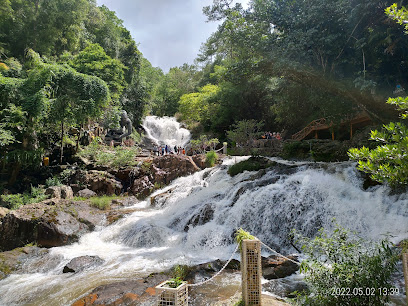
Clay Tunnel
Explore the magical Clay Tunnel in Da Lat, Vietnam, where art meets nature in a stunning display of creativity and culture.
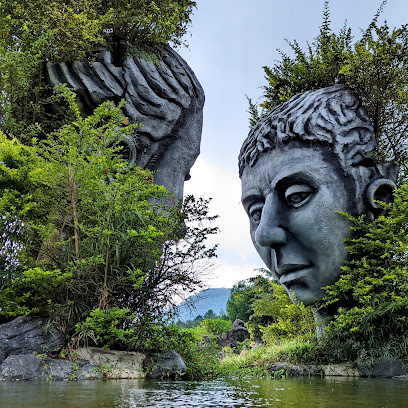
Valley Of Love
Discover the enchanting Valley of Love in Da Lat, a picturesque escape featuring stunning landscapes, vibrant flower gardens, and a romantic atmosphere.
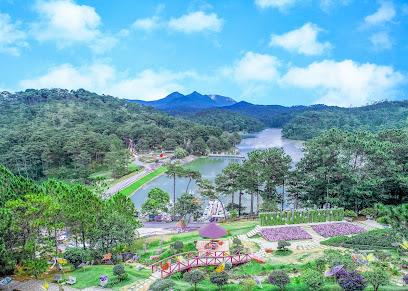
Crazy House
Explore the surreal and whimsical Crazy House in Da Lat, Vietnam—a unique architectural wonder combining nature and creativity for an unforgettable experience.
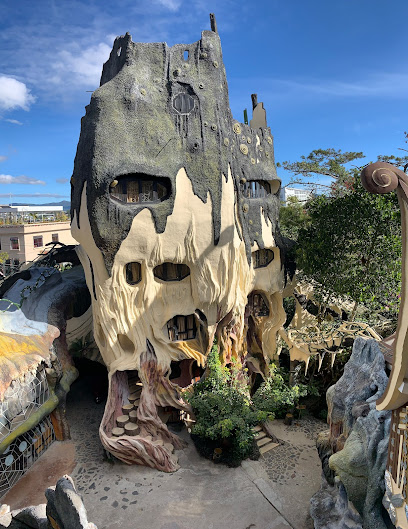
Lam Vien Square
Discover the charm of Lam Vien Square, a picturesque park in Da Lat where nature, culture, and stunning architecture come together.
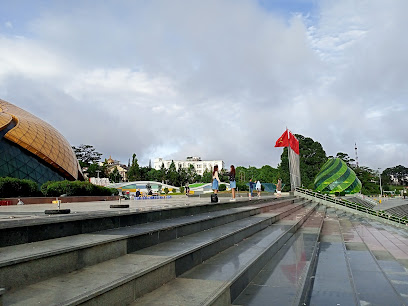
Linh Phuoc Pagoda
Discover the enchanting Linh Phuoc Pagoda in Da Lat, Vietnam, a masterpiece of Buddhist architecture adorned with stunning mosaics.

Tuyen Lam Lake
Discover the tranquil beauty of Tuyen Lam Lake, a natural gem in Da Lat, Vietnam, perfect for relaxation, adventure, and breathtaking views.
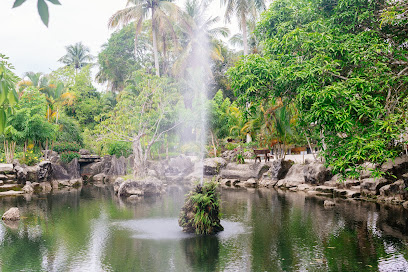
Dinh III Bảo Đại
Explore the regal past of Vietnam at Dinh III Bảo Đại, a stunning summer palace surrounded by lush gardens in Đà Lạt.
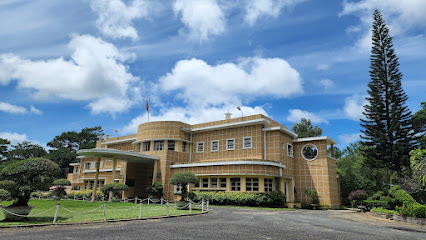
Domaine de Marie
Explore the serene beauty and unique architecture of Domaine de Marie, a captivating Catholic church and pilgrimage site in Da Lat, Vietnam.
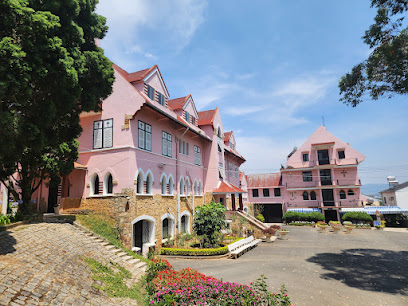
Bao Dai Palace 1
Explore Bao Dai Palace 1, a royal residence in Da Lat, Vietnam, showcasing rich history, stunning architecture, and breathtaking landscapes.
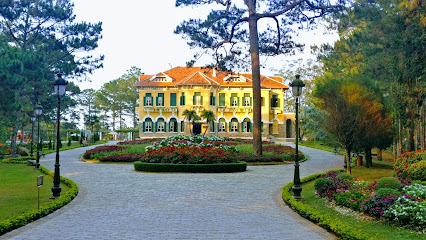
Mongo Land Dalat
Explore Mongo Land Dalat, a breathtaking tourist attraction in Vietnam that blends stunning landscapes with fun, interactive experiences for all ages.
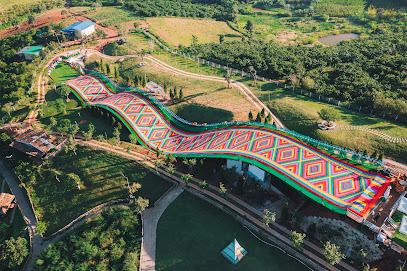
Garden hydrangeas
Discover the stunning colors of the Garden Hydrangeas in Dalat, Vietnam, a must-visit floral paradise for nature lovers and photographers.
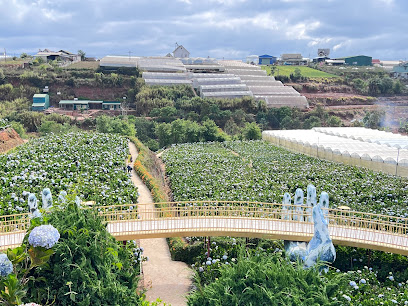
Da Lat Cable Car Station
Discover the breathtaking views of Da Lat from the sky with a thrilling ride on the Da Lat Cable Car, an enchanting tourist attraction in Vietnam.
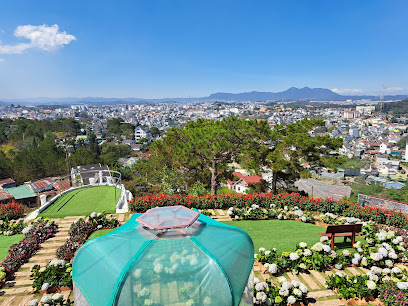
Thiền viện Vạn Hạnh
Discover peace and tranquility at Thiền Viện Vạn Hạnh, a stunning Buddhist temple in Đà Lạt, Vietnam, perfect for reflection and cultural exploration.
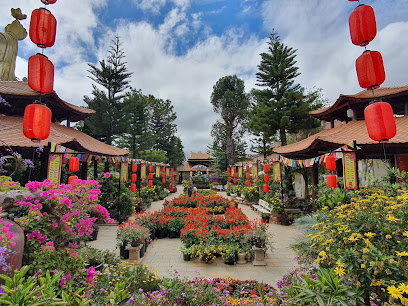
Maple Leaf tourist area
Explore the serenity of Maple Leaf tourist area in Da Lat, Vietnam, where vibrant gardens and tranquil lakes await your discovery.
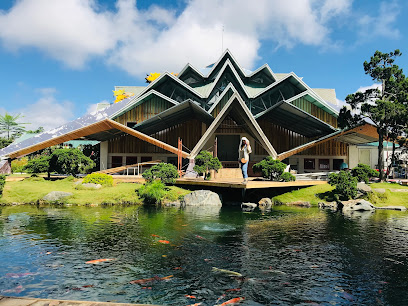
Unmissable attractions to see
Datanla Waterfall
Experience the breathtaking beauty and adventure of Datanla Waterfall in Da Lat, Vietnam, where nature and thrill await every traveler.
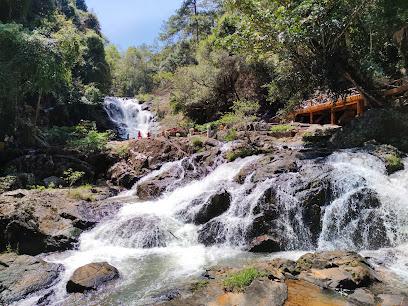
Valley Of Love
Discover the enchanting Valley of Love in Da Lat, Vietnam - a romantic destination with stunning landscapes, vibrant flowers, and serene lakes perfect for leisurely strolls.
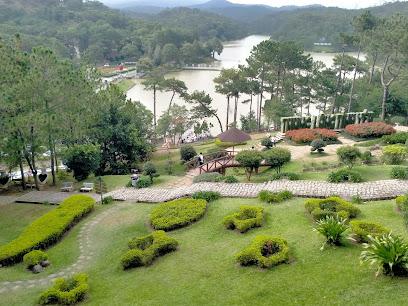
Da Lat Night Market
Explore the bustling Da Lat Night Market for a delightful blend of local cuisine, unique crafts, and vibrant nightlife in the heart of Vietnam.
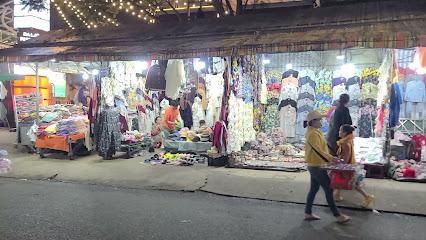
Crazy House - Biệt thự du lịch Hằng Nga
Discover the enchanting Crazy House in Da Lat, Vietnam—a surreal architectural wonder blending nature, art, and imagination into an unforgettable experience.
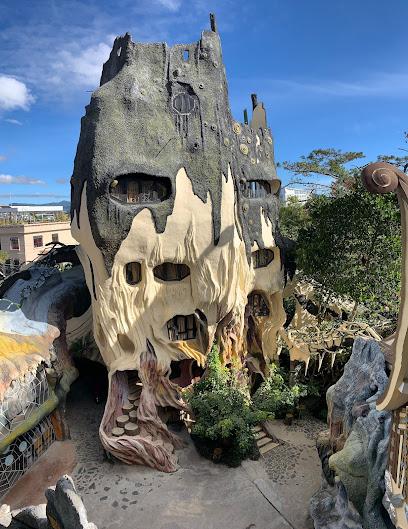
Clay Tunnel
Explore the stunning Clay Tunnel in Dalat, Vietnam, where art, nature, and culture interweave in a picturesque setting.
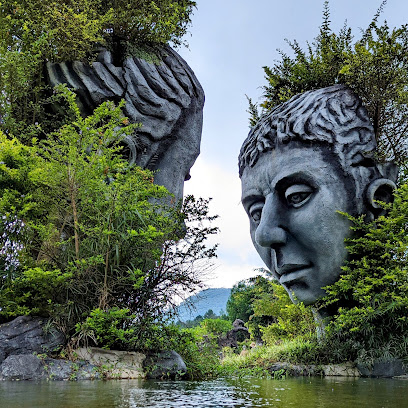
Valley Of Love
Discover the enchanting beauty of the Valley of Love in Da Lat, Vietnam, a scenic paradise filled with vibrant flowers and serene landscapes.
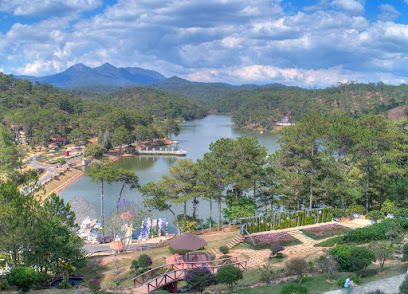
Tuyen Lam Lake
Experience the enchanting beauty of Tuyen Lam Lake, a tranquil escape in Da Lat, Vietnam, surrounded by lush nature and endless outdoor adventures.
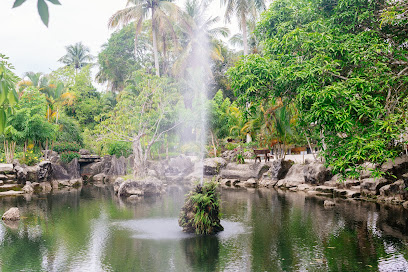
Bao Dai Palace 3
Discover the royal heritage of Vietnam at Bao Dai Palace 3 in Da Lat, a stunning blend of history and nature.
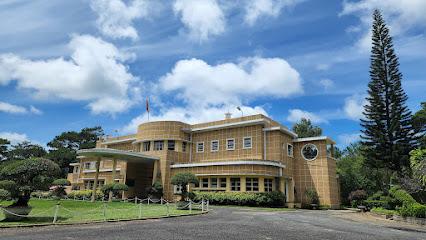
Khu Du Lịch Lang Biang
Explore the breathtaking Lang Biang Mountain in Lam Dong, Vietnam: a paradise for nature lovers and adventure seekers alike.
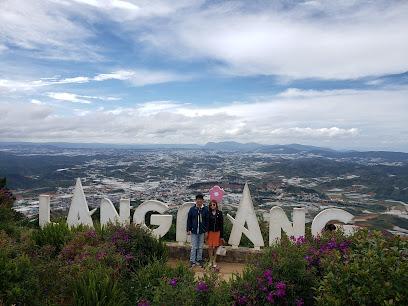
Domaine de Marie
Discover the tranquil beauty of Domaine de Marie, a captivating Catholic church in Lam Dong, Vietnam, blending stunning architecture with serene gardens.

Mongo Land Dalat
Experience the magic of Mongo Land Dalat, Vietnam's vibrant tourist attraction filled with stunning gardens, whimsical sculptures, and unforgettable adventures for all ages.
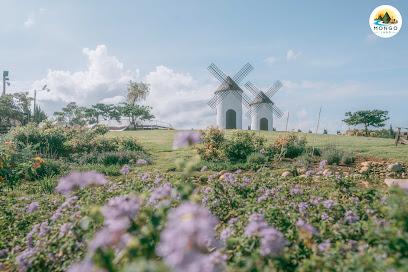
Golden Valley
Explore the stunning landscapes and serene atmosphere of Golden Valley, a must-visit tourist attraction in Lam Dong, Vietnam.
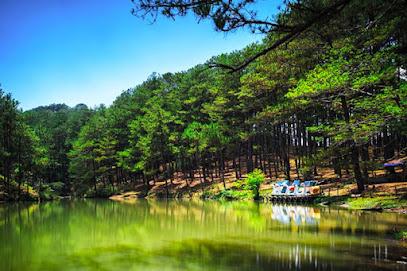
Cánh đồng hoa Cẩm Tú Cầu
Explore the vibrant beauty of Cảnh Động Hoa Cẩm Tú Cầu, a stunning hydrangea garden in Dalat, Vietnam, perfect for nature lovers and photographers.
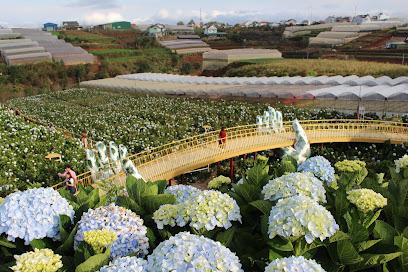
Linh Ẩn Pagoda
Experience the serenity and spiritual beauty of Linh An Pagoda, a stunning Buddhist temple set amidst the breathtaking landscapes of Lam Dong, Vietnam.
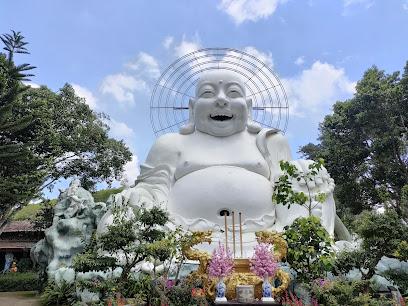
Pongour Falls
Explore the awe-inspiring Pongour Falls in Lam Dong, Vietnam, a natural wonder featuring multi-tiered cascades and picturesque landscapes perfect for your travel adventures.
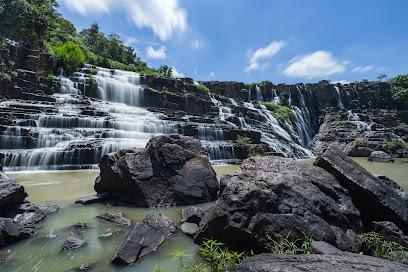
Essential places to dine
Primavera Italian Restaurant
Discover Primavera Italian Restaurant in Da Lat: where authentic Italian cuisine meets enchanting Vietnamese charm.
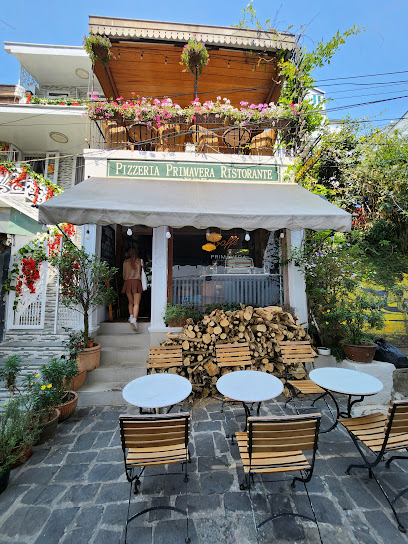
Blue Parrot Mexican Grill
Experience authentic Mexican cuisine at Blue Parrot Mexican Grill in Da Lat - where vibrant flavors meet warm hospitality.
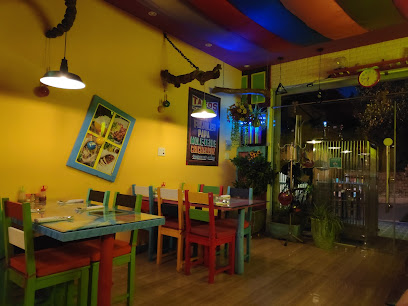
Khap Bun Kha - Quán lẩu thái ngon tại Đà Lạt
Experience authentic Thai cuisine at Khap Bun Kha in Da Lat – indulge in delicious hot pot dishes surrounded by warmth and hospitality.
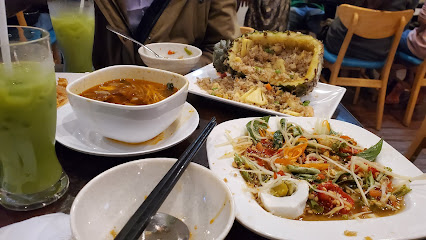
Le Chalet Dalat
Discover the flavors of Vietnam at Le Chalet Dalat, where exquisite cuisine meets charming ambiance in the heart of Da Lat.
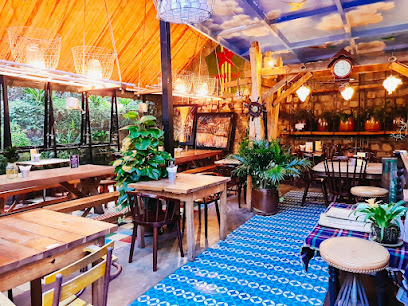
Goc ha thanh
Discover authentic Vietnamese flavors at Goc Ha Thanh in Da Lat – where every dish tells a story.
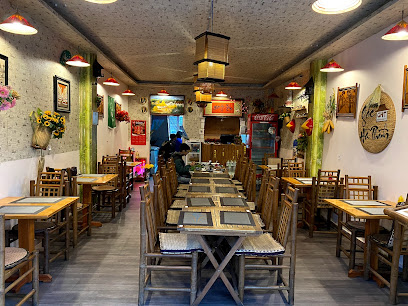
Nhà Hàng Chay Hoa Sen
Savor delightful vegetarian and vegan cuisine at Nhà Hàng Chay Hoa Sen in Da Lat – where healthy meets delicious!
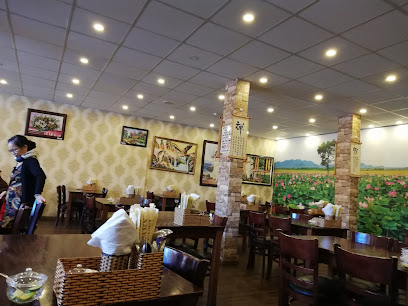
Trang's Cookery Restaurant
Experience authentic Vietnamese cuisine at Trang's Cookery Restaurant in Da Lat – where every dish tells a story.
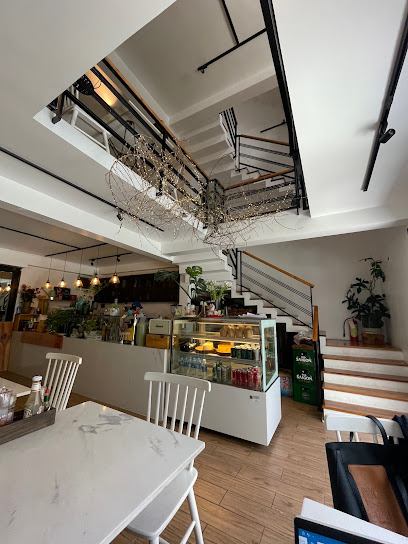
Émai Italian Restaurant & Gardens
Experience authentic Italian cuisine surrounded by serene gardens at Émai Italian Restaurant in beautiful Da Lat.
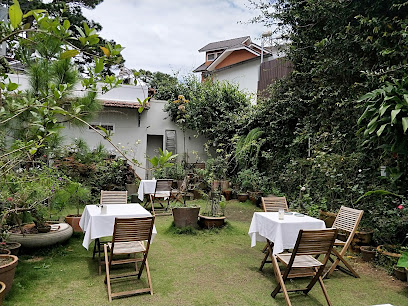
Biang Dalat Garden Restaurant
Experience the best of European and Vietnamese cuisine at Biang Dalat Garden Restaurant in Da Lat – a true culinary delight amidst stunning landscapes.
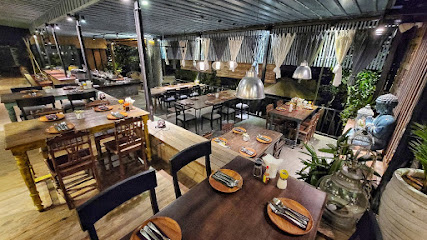
Artist Alley restaurant
Discover the perfect blend of local flavors and artistic ambiance at Artist Alley Restaurant in Da Lat.
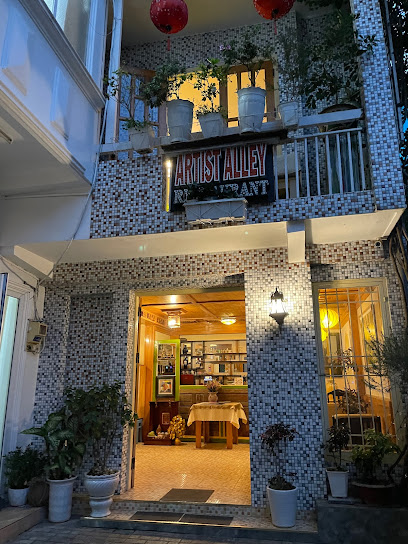
Chef's Dalat
Discover modern European flavors at Chef's Dalat - A culinary gem nestled in Vietnam's charming city of Dalat.
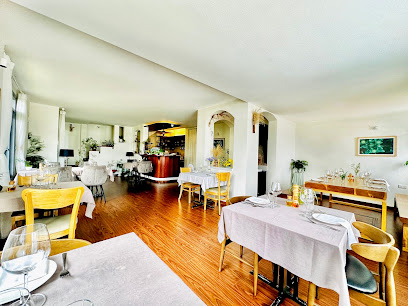
BOTEA
Discover the exquisite fusion of French and Vietnamese cuisine at BOTEA in Dalat – where every meal is an unforgettable experience.
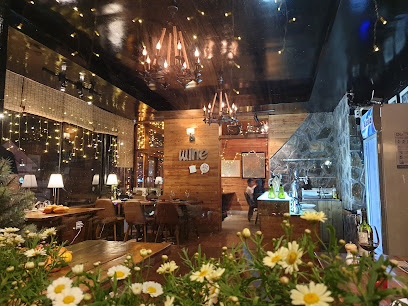
Gourmet Burger
Discover Da Lat's gourmet gem serving up delicious burgers made from fresh ingredients in a cozy atmosphere.
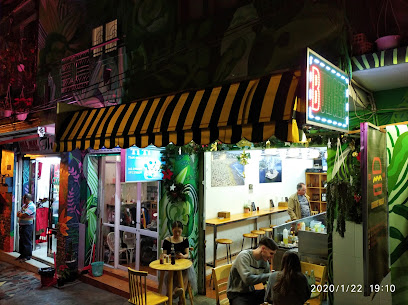
Nhà hàng Túi Mơ To Garden Restaurant
Savor authentic Vietnamese cuisine at Túi Mơ To Garden Restaurant in Đà Lạt - a family-friendly destination featuring delicious grilled dishes and hot pots.
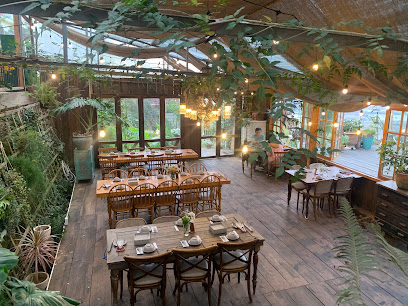
Vcafe Restaurant/Bar Dalat
Experience the vibrant culinary scene at Vcafe Restaurant/Bar in Dalat – where delicious food meets exquisite drinks.
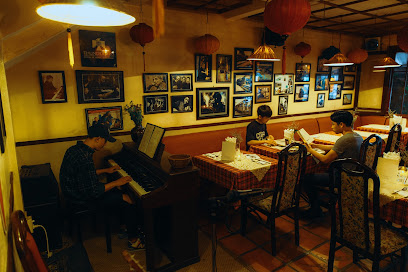
Markets, malls and hidden boutiques
GO! Da Lat
Experience the best of Da Lat at GO! Hypermarket - a vibrant shopping destination with local flavors, fresh produce, and cultural treasures.
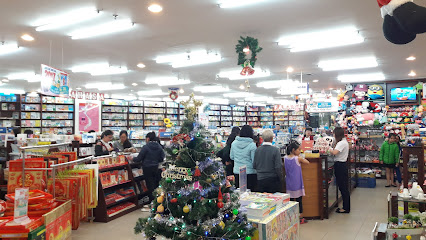
Shop hạ
Explore the vibrant shopping experience at Shop Hạ in Đà Lạt with unique crafts, trendy fashion, and delicious local cuisine.
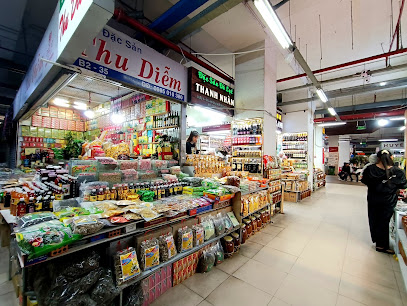
FM Style Đà Lạt
Discover the unique fashion of Da Lat at FM Style Đà Lạt, where local flair meets trendy styles in an inviting shopping experience.
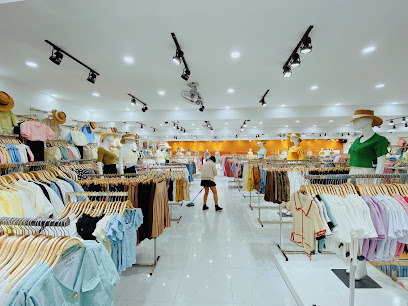
Shop đồ si Pansi.2hand | secondhand, vintage & retro clothing
Explore unique secondhand and vintage clothing at Shop đồ si Pansi in Da Lat, where every piece has a story to tell.
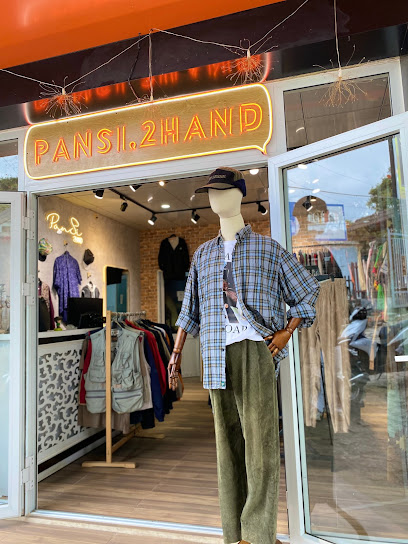
Adam Store Đà Lạt I - Veston, Suit, Shirt, Items for Men, Thời Trang Nam
Shop at Adam Store Đà Lạt for exquisite men's clothing, tailored suits, and stylish shirts, combining quality craftsmanship with contemporary fashion.

Routine
Explore Routine, Da Lat's premier costume and clothing store, where creativity meets style in an unforgettable shopping experience.
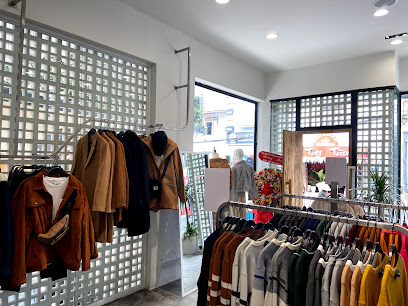
Ở Đây Có Một Con Mèo
Discover unique Vietnamese souvenirs at 'Ở Đây Có Một Con Mèo' in Đà Lạt - a treasure trove of local crafts and artistic delights.
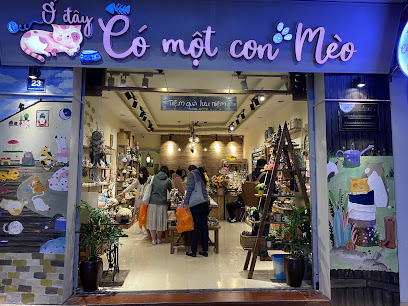
Miue.healing Shop
Explore Miue.healing Shop for exquisite handcrafted gifts and jewelry that capture the essence of Đà Lạt's rich cultural heritage.
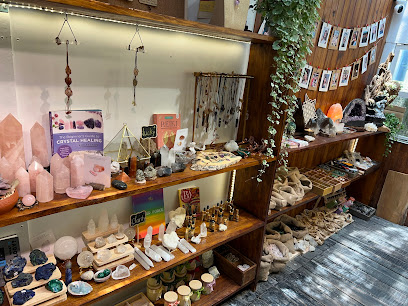
Moss Đà Lạt - Phụ kiện Quà tặng
Explore Moss Đà Lạt for unique gifts, local handicrafts, and stylish accessories, making it your go-to shop in Đà Lạt, Vietnam.
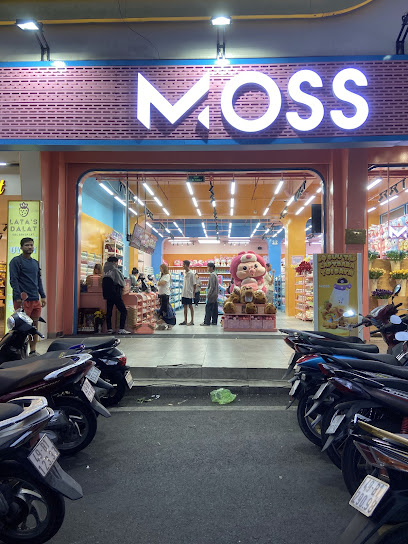
Mỹ Phẩm MoCha Đà Lạt
Explore the enchanting Mỹ Phẩm MoCha in Đà Lạt for premium cosmetics and a unique shopping experience that captures the essence of Vietnamese beauty.
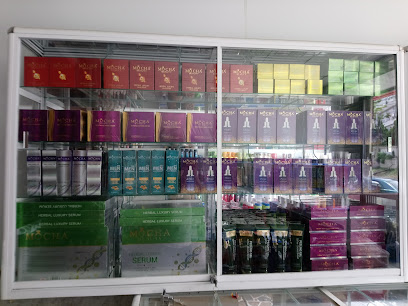
MinKey Store
Discover the magic of wedding planning at MinKey Store, Da Lat's premier destination for bridal gowns and accessories, where dreams come to life.

BESTIE
Explore BESTIE in Da Lat for unique women's clothing that blends contemporary style with Vietnamese charm.
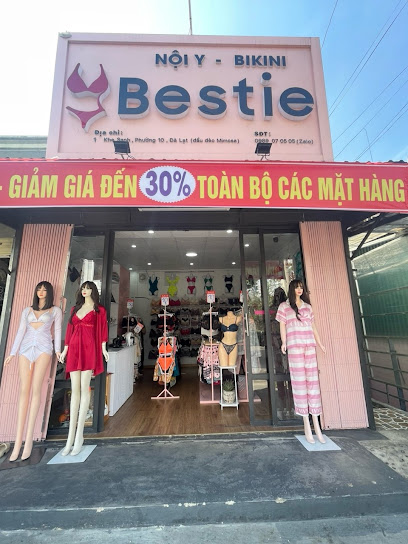
BtotheB Shop
Explore unique fashion at BtotheB Shop in Da Lat, where local style meets contemporary trends for a memorable shopping experience.
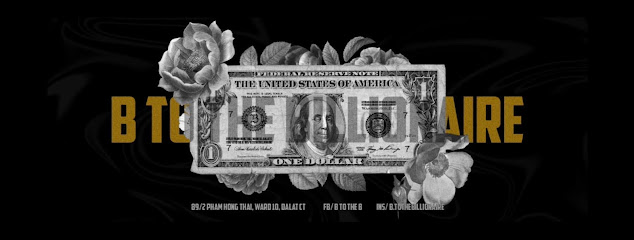
Shop Thời Trang Minh Trâm
Shop Thời Trang Minh Trâm: Your gateway to unique fashion treasures in the heart of Đà Lạt, Vietnam, blending local culture with modern style.

Mee Store - Đà Lạt
Explore the charm of Đà Lạt at Mee Store, your destination for unique jewelry and authentic souvenirs that capture the spirit of Vietnam.
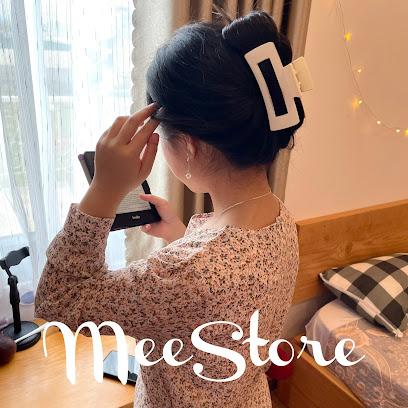
Essential bars & hidden hideouts
Maze Bar
Experience the whimsical charm of Maze Bar in Dalat, where unique decor and vibrant nightlife come together for an unforgettable evening.
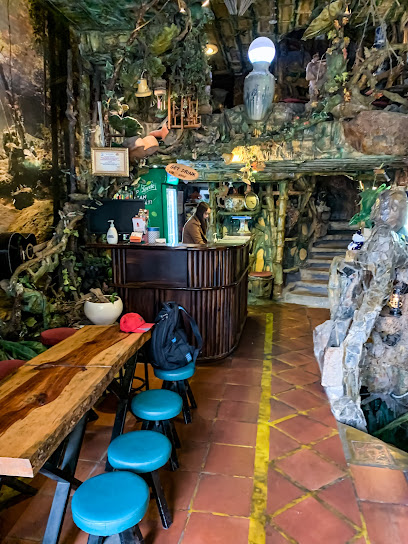
The Balcony Speakeasy Bar DaLat
Experience DaLat’s vibrant nightlife at The Balcony Speakeasy Bar, where exquisite cocktails meet stunning outdoor views in a cozy atmosphere.
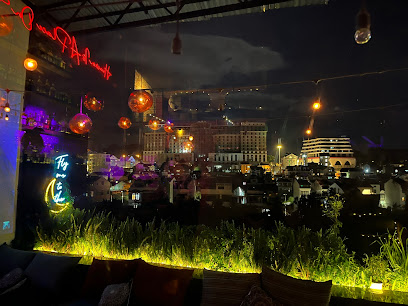
On The Rocks Cocktail Bar
Experience the vibrant nightlife at On The Rocks Cocktail Bar in Da Lat, offering exquisite cocktails and a cozy atmosphere for unforgettable evenings.
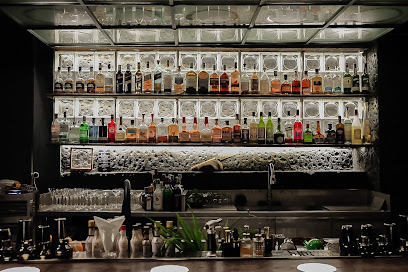
The Classic Pub - NGUYET VONG LAU
Experience the vibrant nightlife of Da Lat at The Classic Pub, where unique cocktails meet a cozy atmosphere in the heart of Vietnam.
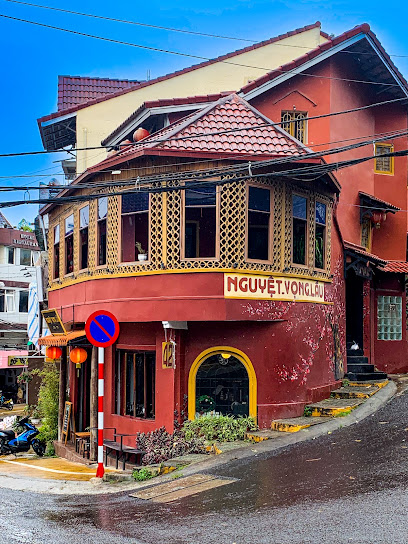
100 Roof Bar
Experience the vibrant nightlife at 100 Roof Bar in Da Lat, where stunning views and a jungle atmosphere await every visitor.
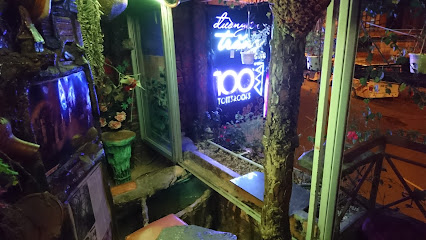
Rain Nightclub Dalat
Discover the pulse of Dalat's nightlife at Rain Nightclub, where electrifying music and vibrant crowds create an unforgettable experience.
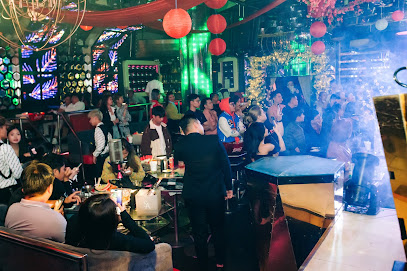
Don Quixote
Discover the vibrant nightlife of Da Lat at Don Quixote, a cocktail bar offering creative drinks and a lively atmosphere for a memorable night out.
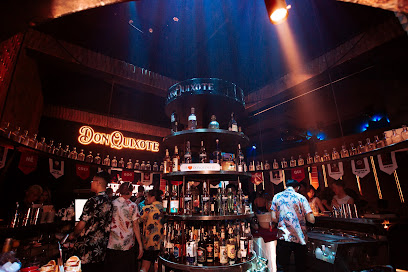
KARMA LOUNGE ĐÀ LẠT
Experience the vibrant atmosphere of Karma Lounge Đà Lạt, where delicious cocktails and stunning views create an unforgettable evening in Vietnam.
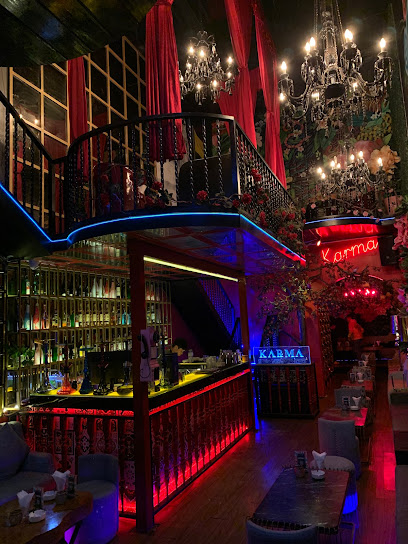
Woody Classic Bar
Discover Woody Classic Bar in Da Lat: A vibrant hub of drinks, music, and local culture in the heart of Vietnam's scenic city.
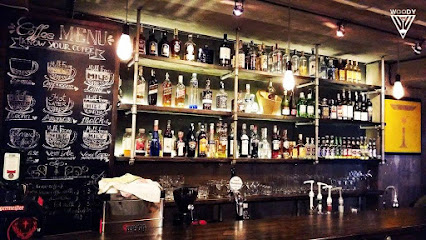
420 Sunset cocktail bar DaLat
Experience DaLat's vibrant nightlife at 420 Sunset Cocktail Bar, where stunning views meet expertly crafted cocktails for an unforgettable evening.
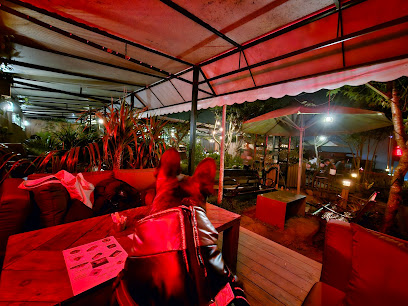
Le Retour
Discover the charm of Le Retour, a cozy wine bar in Da Lat, offering exquisite wines and a delightful ambiance for every wine lover.
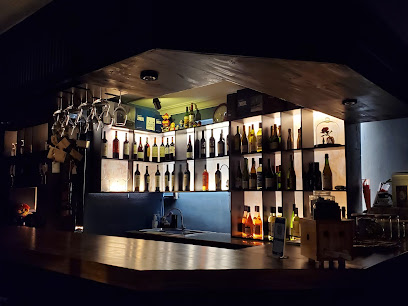
The Fog On Site
Experience the charm of Da Lat at The Fog On Site, a tranquil bar offering exquisite drinks and a cozy atmosphere perfect for relaxation.
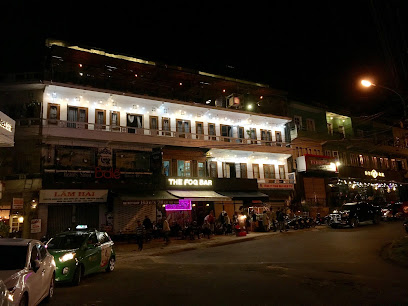
Fox’s Den
Discover the vibrant nightlife of Đà Lạt at Fox’s Den, a cocktail bar renowned for its innovative drinks and welcoming ambiance.
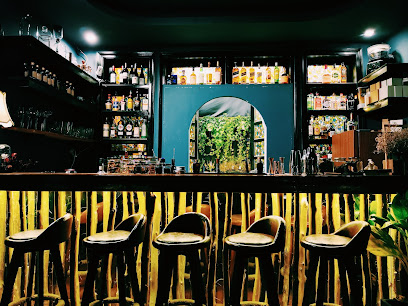
V Sky Acoustic Bar
Experience the vibrant atmosphere and stunning views of V Sky Acoustic Bar, a must-visit destination in Da Lat for tourists seeking relaxation and entertainment.
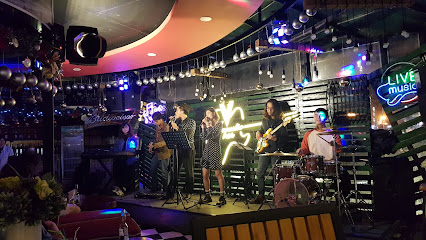
Ci Cocktail Bar
Discover the vibrant ambiance of Ci Cocktail Bar in Da Lat, where exquisite cocktails and a unique speakeasy atmosphere await.
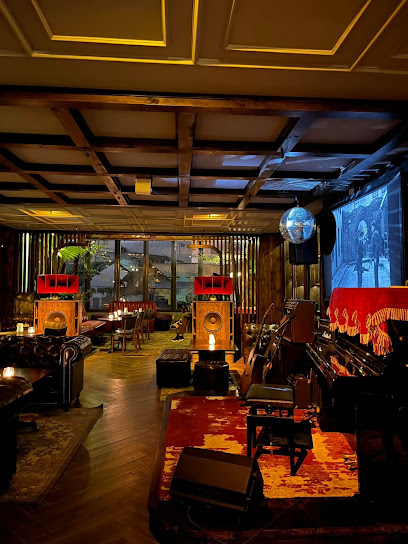
Local Phrases
-
- HelloXin chào
[sin chow] - GoodbyeTạm biệt
[tahm byet] - YesCó
[koh] - NoKhông
[kohng] - Please/You're welcomeLàm ơn
[lam uhn] - Thank youCám ơn
[kahm uhn] - Excuse me/SorryXin lỗi
[sin loy] - How are you?Bạn khỏe không?
[bahn kweh kohng] - Fine. And you?Khỏe. Còn bạn?
[kweh. kohn bahn] - Do you speak English?Bạn có nói tiếng Anh không?
[bahn koh noy tyeng ahn kohng] - I don't understandTôi không hiểu
[toy kohng hyeuh]
- HelloXin chào
-
- I'd like to see the menu, pleaseTôi muốn xem thực đơn, làm ơn
[toy muhn sem took dun, lam uhn] - I don't eat meatTôi không ăn thịt
[toy kohng uhn tit] - Cheers!Chúc sức khỏe!
[chuhk sook kweh] - I would like to pay, pleaseTôi muốn thanh toán, làm ơn
[toy muhn thanh toan, lam uhn]
- I'd like to see the menu, pleaseTôi muốn xem thực đơn, làm ơn
-
- Help!Cứu!
[kyoo] - Go away!Tránh xa!
[trahn sah] - Call the Police!Gọi cảnh sát!
[goy caynh saht] - Call a doctor!Gọi bác sĩ!
[goy bahk see] - I'm lostTôi lạc đường
[toy laht doong] - I'm illTôi bệnh
[toy benh]
- Help!Cứu!
-
- I'd like to buy...Tôi muốn mua...
[toy muhn moo-ah...] - I'm just lookingTôi chỉ xem thôi
[toy chee sem toy] - How much is it?Giá bao nhiêu?
[jah bao nyew] - That's too expensiveĐắt quá
[daht kwah] - Can you lower the price?Bạn có thể giảm giá được không?
[bahn koh te zahm zah doh kohng]
- I'd like to buy...Tôi muốn mua...
-
- What time is it?Bây giờ là mấy giờ?
[by zoh la may zoh] - It's one o'clockBây giờ là một giờ
[by zoh la moot zoh] - Half past (10)Mười giờ mười phút
[moo-ee zoh moo-ee foot] - MorningBuổi sáng
[bwuoy sang] - AfternoonBuổi chiều
[bwuoy chee-oo] - EveningBuổi tối
[bwuoy toy] - YesterdayHôm qua
[hohm kwah] - TodayHôm nay
[hohm nigh] - TomorrowNgày mai
[nyai my] - 1Một
[moot] - 2Hai
[high] - 3Ba
[bah] - 4Bốn
[bohn] - 5Năm
[nahm] - 6Sáu
[sow] - 7Bảy
[bahy] - 8Tám
[tahm] - 9Chín
[cheen] - 10Mười
[moo-ee]
- What time is it?Bây giờ là mấy giờ?
-
- Where's a/the...?Chỗ...ở đâu?
[cho...uh zow?] - What's the address?Địa chỉ là gì?
[jah chee la zee?] - Can you show me (on the map)?Bạn có thể chỉ cho tôi (trên bản đồ) không?
[bahn koh te chee chaw toy (trern barn doh) kohng?] - When's the next (bus)?Khi nào là chuyến xe buýt tiếp theo?
[khee nahw la chw-yen se bwuwt tyep the-ow?] - A ticket (to ....)Một vé (đi...)
[moot vay (dee...)]
- Where's a/the...?Chỗ...ở đâu?
History of Dalat
-
Dalat was founded in the early 20th century by the French colonial government. The city was established as a resort town to provide a cool retreat from the sweltering heat of the lowlands. The site was chosen primarily for its temperate climate, pine forests, and serene landscapes.
-
Alexandre Yersin, a Swiss-French physician and bacteriologist, played a significant role in the founding of Dalat. He was tasked with finding a suitable location for a hill station and recommended the Lang Biang Plateau, where Dalat is situated today. His efforts laid the groundwork for the city's establishment in 1893.
-
Dalat is renowned for its colonial architecture, a remnant of its French colonial past. The cityscape is dotted with French villas, the Da Lat Railway Station, and the Domaine de Marie Church, all of which reflect French architectural styles and contribute to the unique cultural tapestry of the city.
-
Xuan Huong Lake, a central feature of Dalat, was created in the 1930s by the French. Initially a swamp, it was transformed into a lake to beautify the city and provide a central recreational area. Today, it remains a popular spot for both locals and tourists.
-
During the Vietnam War, Dalat was less affected by the conflict compared to other regions. However, it did serve as a strategic location for both the South Vietnamese and American forces. Its relative tranquility made it a refuge for soldiers and civilians alike.
-
Founded in 1957, the University of Dalat is one of the key educational institutions in the city. Initially established as a center for higher education by the Catholic Church, it has grown to become a significant academic hub, contributing to the cultural and intellectual life of Dalat.
-
Dalat is home to various ethnic minority groups, including the K'Ho, the Lach, and the Chil people. Their traditions, crafts, and festivals add a rich layer of cultural diversity to the city. The Gong culture of these communities has even been recognized by UNESCO as an Intangible Cultural Heritage.
-
In contemporary times, Dalat has evolved into a popular tourist destination known for its flower gardens, waterfalls, and coffee plantations. The city hosts the annual Dalat Flower Festival, celebrating its reputation as the 'City of Eternal Spring' and attracting visitors from all over the world.
Dalat Essentials
-
Dalat, located in the Central Highlands of Vietnam, is accessible by air, road, and rail. The nearest airport is Lien Khuong Airport (DLI), approximately 30 kilometers from the city center. Direct flights connect Dalat to major cities like Ho Chi Minh City, Hanoi, and Da Nang. For road travel, buses and private cars are available from Ho Chi Minh City, Nha Trang, and other nearby cities. The journey by road from Ho Chi Minh City to Dalat typically takes around 6-8 hours. Although there is no direct train service to Dalat, you can take a train to nearby cities like Nha Trang or Phan Thiet and continue by bus or car.
-
In Dalat, transportation options include taxis, motorbike taxis (xe om), and car rentals. Taxis are readily available and can be hailed from the street or booked via apps like Grab. Motorbike rentals are popular for tourists who prefer to explore the city and its surroundings at their own pace. Public buses operate within the city, but they can be infrequent. Walking is also a great way to explore Dalat's charming streets and attractions, especially in the city center.
-
The official currency in Vietnam is the Vietnamese Dong (VND). Credit cards are widely accepted in hotels, restaurants, and larger shops in Dalat, but it is advisable to carry cash for smaller establishments and markets. ATMs are plentiful in the city, and you can withdraw cash using international credit or debit cards. Currency exchange services are available at banks and exchange offices.
-
Dalat is generally a safe destination for tourists. However, like any travel destination, it is wise to take standard precautions. Avoid walking alone at night in poorly lit areas and be cautious of your belongings in crowded places such as markets. Petty theft can occur, so keep your valuables secure. Areas around the night market and tourist hotspots can be more prone to pickpocketing.
-
In case of emergency, dial 113 for police, 114 for fire, and 115 for medical assistance. Dalat has several hospitals and clinics that provide medical care. It is recommended to have travel insurance that covers medical emergencies. For minor health issues, pharmacies are available throughout the city where you can purchase over-the-counter medications. Always carry a copy of your passport and emergency contact numbers.
-
Fashion: Do dress modestly, especially when visiting religious sites. Avoid wearing revealing clothing. Religion: Do respect local customs and traditions. Always remove your shoes and cover your shoulders when entering temples and pagodas. Public Transport: Do be respectful and patient. Public transport can be crowded, so be prepared to stand. Don’t eat or drink on public transport. Greetings: Do greet people with a smile and a slight bow. A handshake can also be appropriate in more formal settings. Eating & Drinking: Do try local delicacies and accept food offerings graciously. Don’t refuse hospitality, as it is considered impolite. When eating with locals, wait for the host to invite you to start the meal.
-
To experience Dalat like a local, visit the local markets such as Dalat Market, where you can buy fresh produce and traditional goods. Engage with locals, as they are often friendly and willing to share stories about the city’s history and culture. Don’t miss visiting attractions like the Crazy House, Dalat Railway Station, and the Valley of Love. Enjoy a cup of Vietnamese coffee at one of the many charming cafes. For a unique experience, take a stroll around Xuan Huong Lake or explore the lush pine forests and waterfalls surrounding the city.
Nearby Cities to Dalat
-
Things To Do in Nha Trang
-
Things To Do in Buon Ma Thuot
-
Things To Do in Mui Ne
-
Things To Do in Phan Thiet
-
Things To Do in Quy Nhon
-
Things To Do in Vung Tau
-
Things To Do in Ho Chi Minh City
-
Things To Do in Kratie
-
Things To Do in Can Tho
-
Things To Do in Phnom Penh
-
Things To Do in Tam Ky
-
Things To Do in Champasak
-
Things To Do in Hoi An
-
Things To Do in Pakse
-
Things To Do in Da Nang


















